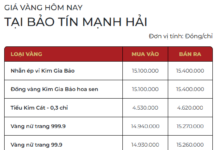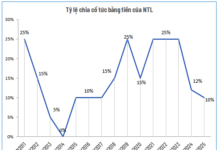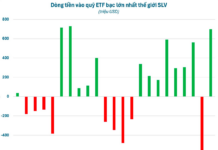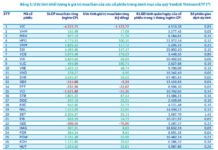The morning of March 14 witnessed the conference to deploy the monetary policy tasks for 2024, focusing on resolving difficulties for production and business, promoting economic growth and stability by Prime Minister Pham Minh Chinh and Deputy Prime Minister Le Minh Khai presiding over.

Mr. Nguyen Van Than.
At the conference, Mr. Nguyen Van Than, Chairman of the Association of Small and Medium-sized Enterprises (SMEs), shared that nearly 1 million small and medium-sized enterprises currently rely on banks’ capital. However, the businesses are facing a capital shortage while banks have excess money.
Representatives from the Association of Small and Medium-sized Enterprises put forward many suggestions to solve this problem.
Firstly, Mr. Than emphasized the need to decisively solve the problem of banks having excess money that cannot be lent, while businesses, especially small and medium-sized enterprises, need money to borrow but are unable to borrow.
According to Mr. Than, this is a contradiction that has been mentioned in many conferences. The State Bank also had many meetings with the Association, but a solution has not been found. Mr. Than believes that lowering loan conditions is not feasible as it violates international law and jeopardizes the safety of capital. Therefore, alternative methods must be sought.
Secondly, banks are not the only institutions that can provide loans to businesses. According to Mr. Than, there are currently many sources, and fiscal policies have packages for loans with an interest rate of 1%. Representatives from the Association of Small and Medium-sized Enterprises suggested that the Government should maximize the effectiveness of these packages. This will provide businesses in general, and small and medium-sized enterprises in particular, with additional sources to access capital.
In addition, there are funds, which are very meaningful tools to support small and medium-sized enterprises without meeting bank loan conditions. Mr. Than also suggested maximizing the use of these funds to support small and medium-sized enterprises. For example, the Small and Medium-sized Enterprise Credit Guarantee Fund, the Innovation Fund, the Small and Medium-sized Enterprise Support Fund, etc.
Mr. Than highly appreciates the Small and Medium-sized Enterprise Support Fund under the Ministry of Planning and Investment. Based on that, he suggested that the Prime Minister direct relevant ministries and the banking industry, the Ministry of Finance, to improve the legal system for businesses to access capital.
Regarding loan interest rates, Mr. Than suggested that the banking industry needs to strengthen inspections. The Inspection Committee should include representatives from associations such as the Banking Association, the Association of Small and Medium-sized Enterprises, and related associations to participate in the Committee. The results of the inspection need to be publicly announced on mass media.
Regarding old debts of businesses, Mr. Than raised the issue that, even though interest rates have been reduced, why do old debts still maintain the old interest rates? Mr. Than suggested that the State Bank Governor must have a “firm” solution to allow banks to adjust old debts of businesses to “match the interest rates for new loans”.
Thirdly, regarding consumer demand, Mr. Than also suggested finding a solution to develop the night-time economy to develop tourism and increase domestic consumption.
“Why do other countries do it but we don’t? We are afraid of this and that. We don’t have the right to be afraid. If there are any consequences, functional sectors such as the police, market management can handle them. Functional sectors like the police and market management are not afraid, so why are we afraid? European and American tourists usually arrive in Vietnam in the late hours, around that time they want to go out but we stop selling goods at 11 p.m.”. Mr. Than raised a series of problems and emphasized: Developing the night-time economy is beneficial for tourism and consumption.
Representatives from the Association of Small and Medium-sized Enterprises also requested banks to closely inspect lending by branches, avoiding difficulties and inconveniences for customers, avoiding situations where “working with superiors is good, but branches mess things up”.





































